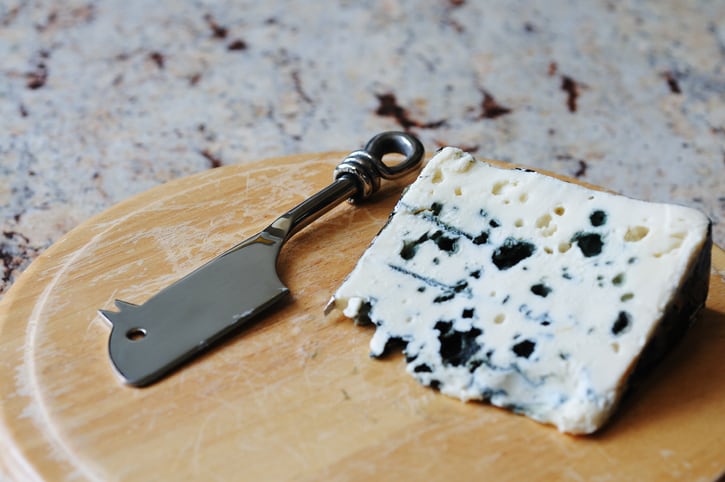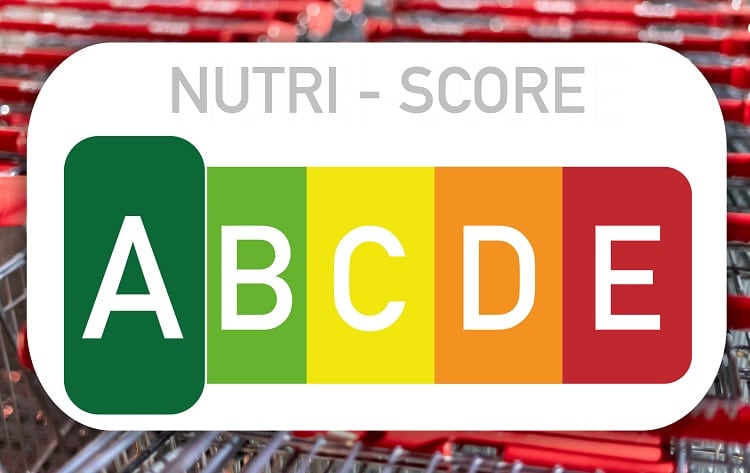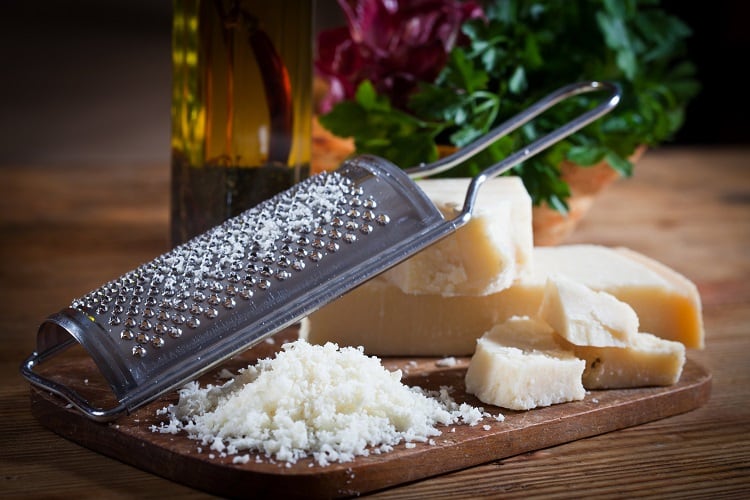The famous tangy blue cheese from southwest France ranks either at D or E under Nutri-Score, making it equivalent to sugary drinks and crisps.
According to Roquefort makers, this marks an attack on France’s national agricultural and gastronomic heritage.
Sebastien Vignette, head of the Roquefort Confederation, called the scoring system “a simplistic logo”. He told a press conference: “It’s paradoxical. There are ultra-processed industrial products with preservatives in them that can get an A or B, but our local and very natural products are stigmatised.”
The Roquefort Confederation has called for the cheese to be made exempt from Nutri-Score (the French government is considering making the food label mandatory next year) and has asked the Minister of Agriculture and Food and the Minister of Solidarity and Health to support its demand that European bodies exclude all Protected Geographical Indications from any EU moves to make Nutri-Score the mandatory FOP nutrition label of choice across the supranational bloc.
The campaign won the support of French MP Stephane Mazars, who represents the Aveyron area, which is stepped in Roquefort tradition.
“The desire to be transparent with the consumer must be rational and based on common sense,” he said.
Farm Europe, a think tank, also supported the Roquefort Confederation’s demands. “The problem posed by the Nutri-Score goes well beyond PDO / IGP,” it said in a tweet. “It is a tool for promoting ultra-processed, chemical & synthetic products to the detriment of natural products rooted in our traditions [and is] misleading for consumers.”
Kicking up a stick
Italian olive oil makers have also railed against the ‘unfair’ Nutri-Score algorithm which they say does not take the health benefits of olive oils into due account and ultimately penalises the product. Under the Nutri-Score system, olive oil usually receives a yellow C rating.
The Italian government has also hit out at Nutri-Score, which it believes unfairly discriminates against its famous food delicacies such as olive oil, Parma ham and Parmigiano cheese and ‘the principles of the Mediterranean diet’.
Why is Nutri-Score controversial?
Nutri-Score classifies food and beverages according to their nutritional profile using a scale of five colours and letters (A is green to represent the best nutritional quality while E is a red to show it’s the lowest).
The label has been officially recommended by health authorities in France, Germany, Belgium, Netherlands, Luxembourg and Spain.
Nutri-Score is calculated via an algorithm developed by a team of independent researchers, which takes into account both the nutrients to limit (ie. calories, saturated fat, sugars and salt) and those elements to favour (such as fibre, proteins, nuts, fruit and vegetables). The aim is to allow consumers to choose the healthy option easily.
‘Roquefort is a product high in fat, salt and calories…’
Nutri-Score supporters leapt to the label’s defence after Roquefort’s complaints.
“Most cheeses rank D or E, some rank B or C,” explained Camille Perrin, Senior Food Policy Officer at European consumer organisation BEUC. “Roquefort is a product high in fat, salt and calories, so this ranking is no surprise for anyone who has ever checked the nutritional table at the back of the pack. The fact Roquefort and many cheeses carrying an EU 'quality logo' have low Nutri-Score ratings does not mean consumers should stop eating them. But they should do so occasionally and in small amounts. Nutri-Score helps consumers to compare foodstuffs within a category – say, cheeses or dairy products. As such, comparing Roquefort to crisps and sodas amounts to comparing apples and pears, and makes no sense from a consumer perspective.”
Nutri-Score aims to make nutritional information simple, not “simplistic”, she added. “It is about translating the nutritional table available on the back of the pack, to make it more understandable and usable by consumers. What is the point of having information consumers cannot make sense of? Research has found that colour-coded labels work best to help consumers’ basket be healthier."
The World Health Organisation’s cancer agency (IARC) recently called for the EU-wide adoption of Nutri-Score as it could benefit public health, she added.
‘Cheese should play the game of nutritional transparency like other foods’
France’s consumer association CLCV added that -- PDO or not -- Roqefort and other cheeses are still rich in fatty acids, salt and calories. Like all other foods, they must therefore ‘play the game of nutritional transparency as quickly as possible’.
“The pleasure of eating Roquefort must remain a pleasure! Yes, Roquefort is good, but it is also fatty and salty and the consumer must be informed that it is rated D or E,” the group said in a release.
“The interest of Nutri-Score is to allow consumers to make an informed choice by comparing at a glance the nutritional quality of products from the same family. Why not allow it for cheese?”





